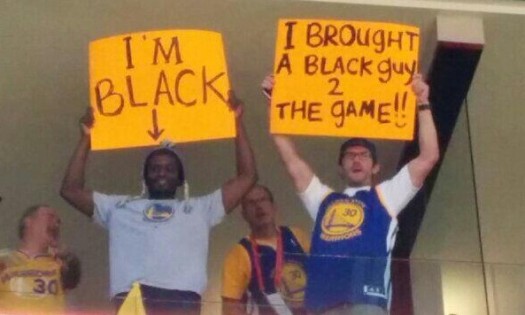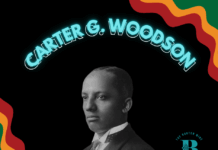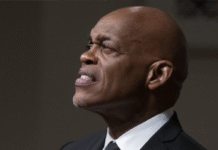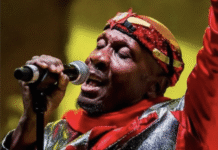
(Photo Credit: Google Images)
The racist, reprehensible statements allegedly made by LA Clippers owner, Donald Sterling, are sparking outrage across America. The players wore generic red shirts with no visible Clippers logo at the playoff game over the weekend. A photo making the rounds on social media is one of an African-American fan holding a sign at the game that reads “I’m Black” while the white fan next to him holds one that says “I brought a Black guy 2 the game.” This solidarity across racial lines is heartening and it makes a poignant statement in the short-term. What impresses me more is a long game that cuts the business of racism at its knees.
Forbes.com reported at the beginning of this year that the LA Clippers team value was $575 million, hauling in $128 million of revenue. According to the site, ticket prices soared 55 percent last year with the team bringing in the fifth largest audience in the NBA. By any amateur calculations, that’s a lot of money. Economic leverage is the most powerful weapon to slay a team owner and an industry that don’t respect the spirit of the game or those who play it.
CarMax, State Farm, Virgin America, Kia Motors America, AQUAHydrate, Red Bull, Yokohama tires and Mercedes-Benz pulled their sponsorships of the Clippers, sending Sterling and his ilk a clear message that they won’t tie their businesses to racism. Every company and every brand has a choice regarding how they spend their money and I applaud those that have chosen to take a stand by exerting their influence. Advertisers continue to flee Sterling’s Clippers, and for those that don’t, we should show our disdain by discontinuing our business with them. Now, all eyes are on the NBA to see how it responds. With public pressure mounting, the NBA will have to act. But will it be a slap on the wrist for Sterling or heavy sanctions? If the constitutional bylaws allow it, will the organization strip Sterling of his team ownership? The National Basketball Player’s Association is calling on the NBA to impose the maximum penalty on Sterling. And the NBA should do so.
Discussions and debates abound regarding how the Clippers players should respond. The racist remarks attributed to Sterling malign African-Americans, who comprise more than three-quarters of the players in the NBA. Many of them were boys practicing their jump shots every day in scrappy, street ball games, dreaming of a career playing pro ball. Now that they’ve made it, I can’t tell them to sacrifice it all to send a message to their boss, who profits from their prowess, but doesn’t respect their humanity. The players must decide for themselves.
What I can do is remind the players, the NBA and the fans that there are defining moments in life when taking a stand can make a difference. History points to economic boycotts that had a significant financial impact. Remember the seamstress, Rosa Parks, who was arrested in 1955 for refusing to give up her seat on a public bus in the segregated south? Led by Dr. Martin Luther King Jr., African-Americans stayed off the Alabama buses for 13 months as part of a well-organized boycott. They walked and carpooled, financially crippling Montgomery’s city transit system and local shop owners. In 1956, the U.S. Supreme Court struck down laws allowing segregation on public buses.
For basketball fans, this best-of-seven elimination tournament is must-see TV and many are paying high prices for admission to the playoff games. But is it worth the price of human dignity and respect? Sure, I want to see the Clippers players be successful in spite of their venomous owner. But if the NBA and advertisers don’t act decisively, it’s time for fans – all fans – who support common decency to sit out these games, sending an economic message to Sterling, the sponsors and the NBA.
This post was written by Nancy E. Johnson, a writer and award-winning journalist living in Atlanta, Georgia. Follow Nancy on Twitter @TheNancyJBrand.







